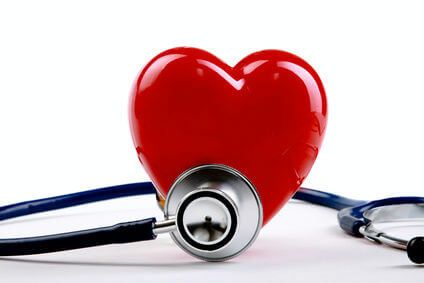
Are you killing your heart? A study out of the University of Toronto in Ontario, Canada found that 27% of patients with heart failure had evidence of a vitamin B2 deficiency while 38% showed evidence of a B6 deficiency.
Another study conducted in Japan found that eating more foods containing B6 lowers the risk of death from stroke and heart disease in women, and may also reduce the risk of heart failure for men.
There is little doubt that B vitamins are essential for good heart health yet many Americans aren’t getting enough of this vitamin. Tuft University researchers discovered that the highest prevalence of B6 deficiency was found to occur in women of reproductive age, especially current and former oral contraceptive users, male smokers, non-Hispanic African-American men, men and women over the age of 65, and alcoholics.
In addition to an increased risk of heart failure, stroke, and heart attack, a deficiency in B vitamins can have other health implications such as:
- Diminished immune function
- Hormone imbalance
- Anemia
- Depression
- Decreased energy levels due to its effects on the metabolism of carbohydrates, fats, ketone bodies, and proteins in the body
How can you ensure that you get enough B2 and B6?
Vitamin B2
Some of the best sources of vitamin B2, or riboflavin, include almonds, sesame seeds, wild-caught salmon, mushrooms, eggs, broccoli, Brussels sprouts, and spinach. Adding dried herbs, peppers and spices to your meals as often as possible is a great way to get a wide range of essential nutrients and minerals, including B2.
Dried ancho chilies contain the most with 133% of the recommended daily value; paprika provides 103%; coriander, spearmint, parsley, and chili powder all meet about half of the daily requirements for this vitamin.
As riboflavin is destroyed by light, food should be stored away from light to protect it from being depleted. It is not destroyed by heat, but it can be lost in water when foods are boiled or soaked. Roasting and steaming preserves more of the vitamin during cooking than frying or scalding.
 Vitamin B6
Vitamin B6
Excellent sources of vitamin B6 include raw garlic, summer squash, bell peppers, spinach, turnip greens, and shiitake mushrooms. Cauliflower, mustard greens, crimini mushrooms, asparagus, kale, Brussel sprouts, collard greens, winter squash, tomatoes, and wild-caught salmon are considered very good food sources.
Keep in mind that it’s important to choose organic veggies to meet your B vitamin needs to avoid toxins that can counterbalance the benefits of nutrients; non-organic produce is generally not as rich in nutrients due to our nutrient-depleted soils.
-The Alternative Daily
Sources:
http://www.ncbi.nlm.nih.gov/pubmed/19631047

